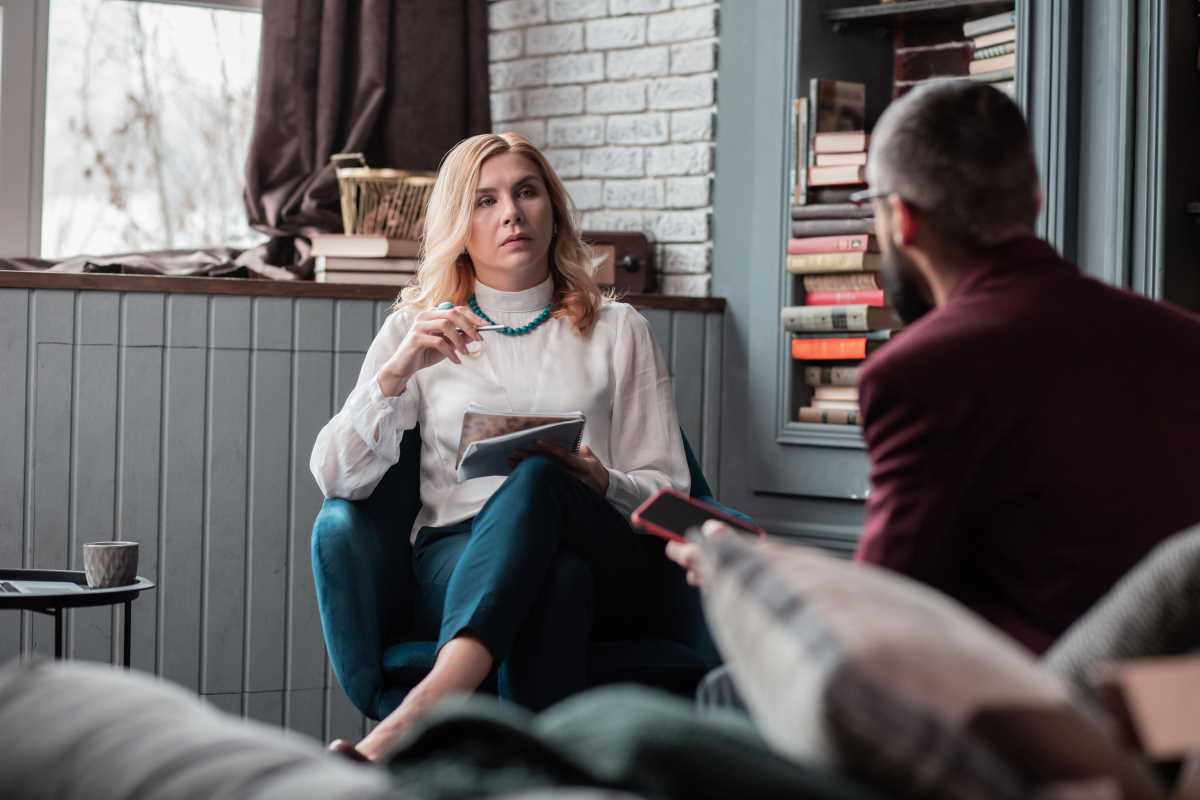Therapy sessions are like road trips for the mind and soul. Your therapist? They’re your co-pilot. But instead of maps or GPS coordinates, you’re navigating emotions, thoughts, and past experiences. And just like any road trip, the right questions can make the ride smoother and more meaningful.
If you’ve felt stuck in your sessions or just unsure about what to ask, don’t worry. Therapy isn’t supposed to feel like an interrogation or a Q&A quiz show. But being proactive with questions can help you dig deeper, build emotional resilience, and unlock growth you didn’t know was possible. To help you out, we’ve curated a list of thoughtful, open-ended questions that can steer your therapy experience toward greater self-awareness and meaningful progress.
Why Asking Questions in Therapy Matters
Before getting into the questions, let’s answer one of the most important ones first: why bother asking questions at all? Here’s the thing. Therapy isn’t a one-sided conversation where your therapist defines the entire agenda. Your input influences where your sessions go. The more open and curious you are, the more tailored and effective your therapy becomes.
When you ask the right questions, a few magical things happen:
- You gain deeper self-awareness. Questions can help uncover underlying beliefs and insights that might not have surfaced otherwise.
- You transform into an active participant. Therapy isn’t about “fixing” you. It’s about collaboration, and asking questions helps you take ownership of your growth.
- You strengthen your relationship with your therapist. Open communication builds trust and rapport, making everything that follows more impactful.
Got your notebook? Let’s get into the questions.
Building Self-Awareness
Understanding yourself is the core of therapy. It’s like peeling back the layers of an onion, except with (hopefully) fewer tears. These questions can help you uncover what’s driving your emotions, reactions, and decisions.
1. What patterns do you notice in how I handle challenges?
Patterns speak volumes about who we are and how we see the world. Spotting them can help you break unhelpful habits or lean into strengths you didn’t realize you had.
2. What role does my past play in how I think or feel today?
This is a biggie for connecting the dots between past experiences and present struggles. Your therapist can help you understand why certain memories or events still hold influence.
3. What are some common thought distortions I might be falling into?
Thought distortions are those sneaky, incorrect ways of thinking (like catastrophizing or black-and-white thinking) that can wreak havoc on your mental state. Identifying them is the first step to facing them.
4. How do I process emotions like anger, sadness, or frustration?
Knowing how you respond to tough emotions can reveal a lot about your coping mechanisms—and whether they’re helping or hurting you.
5. What are some blind spots I might not be aware of?
We all have blind spots (no shame), and therapists are trained to spot those areas we might miss. Think of it as emotional feedback to help level up your self-awareness.
Digging Into Relationships
It’s no secret relationships can be both wonderful and wildly complicated. Whether your questions are about family, friends, a partner, or colleagues, therapy is the perfect place to explore the “why” and “how” behind your interactions with others.
6. Why do I tend to act a certain way in relationships?
For example, do you always avoid conflict, or do you feel the need to overextend yourself for others? Understanding these tendencies can help you set boundaries and maintain healthier connections.
7. How can I communicate my feelings more effectively?
If you’ve struggled to express yourself or feel like you’re not being heard, this question can open up a valuable discussion about communication tools and techniques.
8. What attachment style do I most identify with, and how does it affect my relationships?
Attachment theory gets a lot of attention in therapy—for good reason. Knowing if you lean toward secure, anxious, or avoidant attachment can transform how you approach relationships.
9. How can I rebuild trust after being hurt?
If betrayal or disappointment has left scars, your therapist can guide you in creating a road map for repair or closure.
10. What healthy boundaries might help me in my relationships?
Hint: boundaries aren’t walls that keep people out. They’re guidelines that protect your energy and well-being while fostering better interactions.
Exploring Emotional Growth
Therapy is a unique opportunity to not only address current struggles but also grow into the best version of yourself. Asking questions about emotional growth can ignite new perspectives and encourage you to stretch beyond your comfort zone.
11. What strengths do you see in me that I might overlook?
Sometimes it takes an outside perspective to recognize your own silver linings. Your therapist is great at this.
12. What does self-compassion look like, and how can I practice it?
Spoiler alert: self-compassion isn’t just forgiving yourself for mistakes. It’s treating yourself with kindness and grace—even on the rough days.
13. How do I identify what I really value in life?
When you align your actions and goals with your core values, life feels a lot more authentic and fulfilling. Asking this question can help you refocus on what truly matters.
14. What’s holding me back from achieving (specific goal)?
Whether it’s starting that passion project, improving work-life balance, or building resilience, this question can help you work through obstacles and limiting beliefs.
15. How can I make peace with the parts of myself I don’t like?
We all have those inner critics that nitpick every perceived flaw. Talking to your therapist about these feelings can help you find acceptance and healing.
Deepening the Therapeutic Connection
Your relationship with your therapist is foundational for progress. The more honest and transparent you are, the better equipped they’ll be to guide you forward.
16. What can I do between sessions to keep growing?
Think of it like therapy homework—but less intimidating. Your therapist might suggest practical exercises, reflection techniques, or habits to build on your session takeaways.
17. Am I being as open and honest as I could be in our sessions?
Therapists are pros at creating a nonjudgmental space, but sometimes we still hold back out of fear or habit. Asking this question can uncover areas where you could open up more.
18. How do you notice me evolving since starting therapy?
It’s easy to overlook progress when you’re in the middle of it. Hearing your therapist reflect your growth back to you can be incredibly validating.
19. What’s the bigger goal we’re working toward?
This keeps things intentional by ensuring that you’re on the same page about where therapy is headed. It also helps you feel more motivated and anchored in the process.
20. What happens if I decide to stop therapy?
This might sound counterintuitive, but understanding how life after therapy could look can be empowering. It’s less about cutting ties and more about knowing you’ve gained tools to tackle things on your own.
When it comes to therapy, curiosity isn’t just encouraged; it’s essential. Thoughtful questions can steer your sessions in productive, eye-opening directions while helping you gain clearer insights about yourself and your life. Over time, these discussions create the foundation for emotional resilience, healthier relationships, and a deeper sense of self-understanding.
Not sure where to start? Pick one or two questions from this list that resonate the most and bring them to your next session. Remember, therapy isn’t about having all the answers from the get-go. It’s about starting a dialogue, digging deeper, and being open to discovery. Your therapist is there to guide and support you every step of the way.
 (Image via
(Image via





